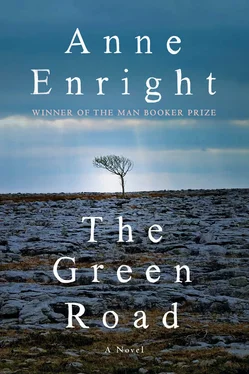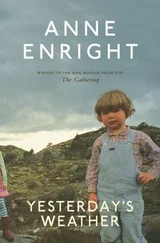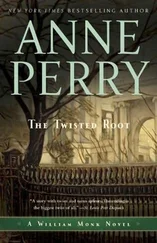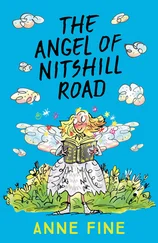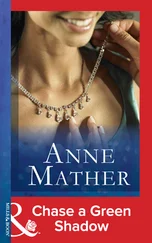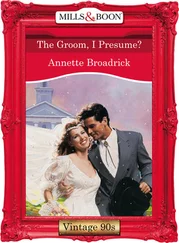Rosaleen.
She was an old fool, that much was true. There was no doubt about that.
‘And by the way,’ she put at the bottom. ‘P.S Do, DO come for Christmas this year, it’s been so long!!! And I have decided to sell the house.’
Part Two. COMING HOME, 2005
LUDO SAID HE had to do it, it was the last chance he would get.
‘For what?’ said Dan.
‘To be in the house. To see your mother while she is still your mother,’ Ludo said. He paused in his chopping and dicing and looked out at the yard. The snow outside was high to the windowsill, and the flat under-light made everything in the kitchen look drab and momentous. The blue of it took the money out of everything, Dan thought — all Ludo’s cosy objects, and his middle-aged skin. The bell peppers on the chopping board, meanwhile, were a more thrilling shade of red.
‘She is always my mother,’ said Dan.
Which was Ludo’s point exactly.
‘Well make up your mind.’
‘I rejoice in my contradictions,’ said Ludo and he lifted the big knife, waving it high.
‘Yeah well,’ said Dan. ‘I am not saying I came out of some other woman, I am just saying it was a long time ago.’
‘This is not a lucky way to talk,’ said Ludo.
‘Lucky?’ said Dan, as he opened the fridge, its interior green as a hanging garden with lettuces and leeks, the default champagne in the rack and imported gin in its earthen bottle, keeping cold. Ludo was, among other things, a rich man while Dan, for reasons that were never entirely clear to him, was not rich. Not even slightly.
‘What do you mean, lucky?’
‘Life is too full of regrets,’ said Ludo.
A big-featured man with eyes of serious blue, Ludo favoured pinstriped waistcoats and leather jackets, with buttonhole and umbrella, and his house was full of stuff. This was new for Dan, who had woken up in a lot of beautiful white rooms in his day. A nice brick-colonial in Rosedale, Toronto, it had antique cotton quilts and a rocking chair in the bay window: there were three different kinds of maple in the front yard and behind the up and over garage door was a wide shovel for snow.
Ludo was interested in early American landscapes and Dan was surprised to find he was interested in them too. At least a little. They first met in New York over a sincere view of a river gorge that Dan was offloading for a friend. One thing led to another, of course. When Dan flew up with the piece they ended up in bed again, after which they discussed Ludo’s growing collection, as Dan had hoped to do.
Sexually, Ludo was frankly masochistic and this appealed to Dan’s chillier side. But you can never do these things twice. Besides, masochists were always boring in the end. Also — perhaps inescapably — in the middle. And Dan was slightly bored with being bored, though he still craved that little jolt of empathetic pain.
So perhaps it was lucky that, in Toronto, Ludo was off script; too baggy minded and curious to stay in role. Dan felt his age as he realised this was, in fact, what he had flown up for — for the chat, for Ludo’s easy, good company. It did not take them long to hang up the leathers and settle into something else: mostly in Brooklyn, when Ludo was down lawyering in New York, then some skiing near Montreal, a winter break in Harbour Island, until Dan ended up in Toronto for six months because cash was so short, and Ludo so easy. He let out his place in Brooklyn and gave it a go.
Easy like a fox. Ludo handed Dan a credit card for household expenses with a rueful look that must have been useful to him in court. If Dan wanted to fuck him over, he seemed to say, then this would be a good way to do it, too. But Dan did not fuck him over. Or not much. And five years later, there they were, like a pair of sweater queens, sniping at each other about Dan’s mother, because ‘mother’ was one of those words for Ludo, She’s your mother .
Ludo’s mother Raizie was back in Montreal. Eighty-three years old, she was on a kaffeeklatsch circuit with the escaped matrons of Mile End, over in leafy Saint-Laurent, where no one, it seemed, could believe their good luck, or their bad luck, because if their son wasn’t buying a country place, he was in the middle of a terrible divorce. The daughters lost weight or they found a lump and one grandchild outshone the next. There were also disasters, of course. Men died. Women got depressed. Sons were seldom gay, it had to be said, but life was good enough for the escaped matrons of Mile End to leave some room even for this sad surprise and they were able to enjoy them both, Ludo and Dan, when they showed up. Dan was not the first man Ludo brought home but, as Raizie said, cupping his face with her dry old hand, ‘You are the nicest!’ There were no doubts. They went over to Montreal, twice, maybe three times a year, and Ludo came home each time more contented and capacious.
Dan liked to watch Ludo about his mother’s house, a big man in a small space, the dinkyness of his hands as he washed her china cups, the unembarrassed way he sat in the old recliner, the way he said, ‘Raizie, Raizie,’ when she fretted about the past and all the things that could not be put right. It seemed to Dan that Ludo spoke many languages — even his body spoke them — while he, Dan, spoke only one. They went over to his sister’s house, and her teenage children gazed at Ludo like they knew he was something belonging to them, but they weren’t sure what, exactly. Or not yet.
Meanwhile, he, Dan, had not been home to Ardeevin for three years, maybe five. Donal, Rory and — what was her name? — Shauna — they were different people already. Those boys of piercing purity, with their beautiful country accents if they ever brought themselves to speak, and the mottled blush when they did because their uncle was a queer: no one told them that he was gay, they just figured it out for themselves. In this day and age. And he, Dan, maddened by the shame of it, carried a boner with him all the way back to Dublin and, one time, fucked a guy until he yelped in the washroom on the train.
The ground rushing under them in the crescent-shaped gap at the bottom of the bowl; a thousand flickering railway sleepers and the cold earth of Ireland.
Now that’s what I call gay .
No, Dan could not go home. Or if he did go, it was not Dan who walked in the door to them all.
‘Well, hello!’
It was someone else. A terrible version of himself. One he really did not admire. He might bring them out to Toronto, but they would not know where to put themselves or what to say. And their wretched mother, Constance, who disbelieved everything he said and did — every single thing. Dan could not eat his lunch without her doubting him.
‘Oh my god that is so good.’
‘What, the bread?’
Disbelieving the contents of his own mouth.
‘Yes the bread, Constance.’
Anything other than ‘white’ or ‘brown’ was an affront to Constance. Food itself was an affront. She lived on bad biscuits, because there was no harm in a biscuit, and she had fat in places Dan had never seen before. That time in Brooklyn, she wore a sleeveless top in the heat and the flesh popped out in a globule between breast and armpit, which was a whole new place for Dan. It was like a new breed of arm. And now it was everywhere he looked. Walking down the street. Everywhere.
‘I’m sure she’s perfectly fine,’ said Ludo, getting into bed beside him after dinner of stuffed peppers followed by a pomegranate and apple salad and a long evening talking about the Madigans.
‘It’s family,’ he said.
And of course Ludo would love Constance, with her deliberate stupidity and her supermarket hair. That was not the problem. The problem, Dan realised, was that Constance would not love Ludo, as he loved Ludo. She just couldn’t. She would not have the room.
Читать дальше
